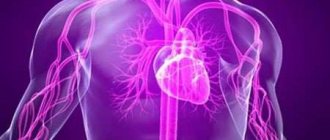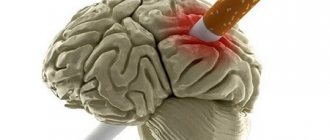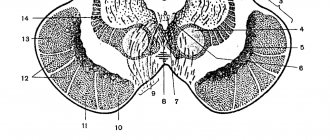The harmful effect of alcohol on the human brain is undeniable, since the substances contained in it affect all functional centers of the nervous system, which leads to the gradual destruction of the entire organism.
For many countries, adult alcoholism is a problem, since people who drink large quantities of alcoholic beverages often slide down the social ladder and subsequently lead an immoral lifestyle. The most severe consequence of alcoholism is a disease called alcoholic encephalopathy of the brain, which often leads to death.
How alcohol affects the human brain
The destructive effect of alcohol on the brain has been well studied by scientists and specialists in this field. The ethyl alcohol it contains is a toxic substance. For this reason, long-term consumption of alcohol-containing drinks has a toxic effect, which is expressed in the gradual destruction of all types of cells, but the brain suffers the most, since its functional structures - neurons and their connections are especially sensitive to the influence of ethanol.
Against the background of damage to nerve cells, dysfunction of the cognitive nerve centers of the brain develops, which is expressed in an inadequate reaction of the drinker: his morality decreases, his idea of standards of behavior and morality is distorted.
The cerebellum and brain stem also suffer from the effects of alcohol. This manifests itself in a disruption in the transmission of impulses sent from the nerve centers of the structures of the reticular formation to the motor nuclei of the “small brain”. Subsequently, the brain ceases to correctly perceive reality: as you know, a drunk person does not notice a lack of coordination of movements.
Systematic poisoning of the brain with alcohol often leads to disruption of the nerve centers responsible for memory and perception of reality, which in alcoholics manifests itself in changes in consciousness and other mental abnormalities.
The circulatory system also suffers from the effects of ethanol: but it increases the permeability of the walls of blood vessels and contributes to their destruction due to disruption of the synthesis of collagen and elastin. In other words, in alcoholics, the blood vessels become fragile and susceptible to external influences. Against the background of these processes, due to metabolic disturbances between brain structures, swelling of this organ of the central nervous system may occur, and the likelihood of cerebral bleeding also increases.
Oxygen starvation and lack of nutrients due to blood thickening outwardly manifests itself in a feeling of intoxication and nervous excitement, which is why people who drink large amounts of alcohol often become uncontrollable.
Against the background of the destruction of some neurons, other pathological processes develop in the brain:
- reduction in organ weight;
- smoothing of convolutions and furrows;
- formation of brain voids.
How to reduce the negative effects of alcohol before a feast
Life is life, and there are often situations in it when you have to “sip” at least a little. To prevent alcohol from having such a detrimental effect, you need to prepare in advance. 4-5 hours before the upcoming drink, you need to drink a small amount of alcohol and eat a hearty meal.
This is the so-called alcohol vaccine; it promotes the production of the enzyme alcohol dehydrogenase, which destroys alcohol. The body will be prepared for the new dose, and it will not be so dangerous.
The “vaccination” can be done by replacing alcohol with 1 tablespoon of Eleutherococcus (medicinal plant), and if you have high blood pressure, you need to drink hawthorn tincture.
To reduce the absorption of alcohol before the banquet, you need to eat a hearty sandwich with butter, drink a raw egg, strong coffee or tea with lemon.
If preparation was not possible, then the following rules must be followed:
- Drink in small doses, spread over time;
- Do not mix different drinks, give preference to one;
- It’s good to have a snack, not forgetting about greens and citrus fruits;
Immediately before and immediately after a feast, it is good to drink Nutriclins, Zorex or glutargin; they help remove alcohol faster and reduce its toxic effect. Alcohol consumption should be avoided. Temporary “relaxation” can cost the health and even the life of the drinker and his loved ones.
Mechanism of action
In order to understand how alcohol affects the human brain, you first need to delve into the natural sciences: organic chemistry and biology.
The main and main component of alcohol is ethyl alcohol. This substance, due to its physical and chemical properties, is a good solvent, so at the first stage it thins the blood and reduces the muscle tone of the walls of the blood vessels of the brain. A person relaxes, his blood pressure decreases, and he begins to feel a surge of vitality and a lift in mood.
But after half an hour of active alcohol consumption, an absolutely opposite process begins to occur - the blood becomes dehydrated and thickens, the blood vessels undergo a sharp spasm, which is expressed in increased pressure. For this reason, a person who has had too much drinking visually has a red face. This process is explained by another chemical property of ethanol - dehydration, that is, the ability to split off and remove water molecules from the body.
Against the background of blood thickening, its special cells - red blood cells - suffer. Their main task is to transport oxygen to all body systems and remove carbon dioxide from cells back into the atmosphere. Against the background of blood dehydration, red blood cells begin to stick together, which contributes to metabolic disorders, while the brain ceases to receive a sufficient amount of oxygen - hypoxia develops.
Also, against the background of systematic blood thickening, a person becomes susceptible to the development of thrombosis, which, in combination with high blood pressure, can provoke the development of a pre-stroke condition with the ensuing consequences. Thick blood becomes viscous, which slows down its movement through all blood vessels.
This development of events leads to a disruption in the supply of nutrients to the brain, and since this organ is especially sensitive to starvation, it then undergoes slow destruction caused by the death of neurons. That is, it turns out that alcohol indirectly kills functional brain cells. Of course, no one can purely mathematically calculate how many neurons die from alcohol, but it is believed that their number is directly proportional to the amount of alcohol consumed, and the more often a person “drinks” a glass, the more intensely the nervous tissue will be destroyed.
This pathological process, if left untreated, can lead to organic damage to brain structures or, in other words, to alcoholic encephalopathy.
Previously, according to the international classification of diseases ICD-10, such a disease was located in the section “Other brain lesions” under code G93.4, but subsequently it was moved to another section under code G31 “Other degenerative diseases of the nervous system, not classified in other sections” " For this reason, today alcoholic encephalopathy in ICD-10 is located in chapter G31.2: “Degeneration of the nervous system caused by alcohol.”
As you know, retribution for the wild fun the day before awaits those who drink alcohol in the morning in the form of a hangover. It is a post-intoxication state due to the abuse of large amounts of alcohol-containing substances. It is usually accompanied by headache, nausea, excessive sweating, dry mouth and irritability. All these processes are a consequence of blood dehydration with ethanol and the accumulation of a large number of its breakdown products in the body.
Consequences
The most dangerous consequence of long-term alcohol consumption is alcoholic encephalopathy - an irreversible brain disease, expressed in the massive death of neurons and the slow decline of brain functionality.
The manifestations of this disease are extremely detrimental to the patient’s health: at the beginning he develops mental disorders of varying severity, memory lapses appear, he becomes emotionally unstable, while his mood can change instantly regardless of what is happening around him, then the destruction of nervous tissue leads to complete degradation personality, which indicates the last stage of alcohol dependence.
Systematic destruction of neurons entails a change in consciousness - from stupor to coma in severe cases of poisoning. Moreover, the last manifestation of the disease in alcoholism is a consequence of cerebral edema and the appearance of multiple foci of hemorrhage. The fulminant course of alcoholic encephalopathy is accompanied by fever, the patient often falls into a coma and dies from the development of edema and swelling of the brain matter.
In a healthy person, alcohol abuse provokes the development of Korsakoff's disease, the symptoms of which are expressed in all the signs of a severe form of alcoholic encephalopathy - personality degradation, impaired cognitive functions of the brain and damage to the peripheral nervous system.
Such a person subsequently gets lost in the days of the week, does not know the current date and cannot find a solution in basic situations. Also, the effect of alcohol extends to the functioning of other body systems - Korsakov’s disease often manifests itself in the progression of muscular dystrophy, which leads to disability. Due to the destruction of interneuronal connections, the human brain ceases to function normally; for this reason, long-term alcohol consumption can lead to disorganization of the functional structure of the brain - its cortex.
The prognosis of the disease depends on a large number of factors: age, degree of destruction of brain structures and physical endurance of the patient. As a rule, the acute form of the disease is not in vain for all patients - after making such a diagnosis, in 50% of clinical cases the death of the patient occurs, while in the remaining situations the person remains deeply disabled.
Often, due to alcohol consumption, a person is diagnosed with alcoholic epilepsy. The peculiarity of this disease is that characteristic attacks occur only during a hangover and disappear completely after getting rid of addiction.
Since alcohol inhibits the functioning of the functional centers of the brain stem, long-term alcohol consumption leads to disruption of the functioning of the structures of the reticular formation. This manifests itself in increased fatigue, sudden changes in mood and problems with sleep - alcoholics often lose the sense of time and confuse day with night. Also, systematic drinking of alcohol leads to the development of other mental pathologies: delirium tremens, paranoia and hallucinosis.
The human circulatory system also suffers from ethanol; this manifests itself in stenosis of the walls of blood vessels, which, in combination with hypertension and a predisposition to thrombophilia, can provoke the development of a stroke.
A frequent accompaniment of long-term use is memory loss after alcohol, and the function of memorizing incoming information is turned off only at the moment of drinking a strong drink, however, over time, when the intoxication of the body decreases, a person can remember some moments from the past feast.
As you know, not only the alcoholic himself, but also his family suffers from continuous drunkenness. This manifests itself in frequent scandals, assault and jealousy on the part of the user. This development of events has an extremely negative impact on the psychological microclimate in the family, and children often begin to copy the behavior of their elders after a while.
How to treat Wernicke-Korsakoff syndrome
The problem in this case is that the lack of thiamine greatly affects the perception and processing of information
The effect of alcohol on the brain is that attention and concentration are greatly deteriorated, and memory lapses are observed. For treatment to be effective, doctors prescribe special medications containing thiamine.
But recovery is possible under the following conditions:
- complete cessation of further alcohol consumption;
- initiation of treatment in the early stages of the syndrome.
If the influence of alcohol has already become the cause of an organic change, i.e. the nature of the damage is irreversible, then the treatment already pursues completely different goals. It is not the restoration and normalization of the general condition that is carried out, but only the care of the patient and the maintenance of the maximum possible vital activity. The effects of alcohol are so harmful that nothing can be changed. Therefore, you cannot trigger the disease if you know how alcohol affects you. Treatment must be timely. A small percentage of patients suffering from thiamine deficiency may have a genetic predisposition to it. A person who begins to abuse alcohol and has a similar predisposition will most likely have a problem with thiamine deficiency. Regular examinations are required so that the disease does not reach a stage where it can no longer be cured.
Thus, alcoholic drinks have an extremely negative effect on the brain. With alcohol abuse, various disorders can be observed, including a lack of vitamins, microelements, memory loss, and a lack of thiamine. All this leads to the fact that the quality of life is greatly deteriorated. If you do not start treatment and do not give up alcohol, the central nervous system will undergo irreversible changes that cannot be treated. Only timely cessation of alcohol will allow you to avoid numerous troubles, completely undermined health and destroyed family relationships.
Features of the influence of alcohol on a woman’s brain
Representatives of the fairer sex are more susceptible to the harmful effects of ethanol compared to men, which manifests itself in rapid addiction to alcoholic beverages. This subsequently leads to alcohol-induced brain damage. Also, a woman is often on the verge of death due to the development of a number of other degenerative diseases: liver cirrhosis, heart disease, etc.
Abuse of alcoholic beverages during pregnancy is especially dangerous, since in this case not only the woman’s body suffers, but also the child’s. This manifests itself in deviations in the formation of all life support systems of the fetus, including the brain. Such children may develop intrauterine fetal alcohol syndrome, which manifests itself in external abnormalities and insufficient formation of central nervous system structures. For this reason, children of alcoholics often lag behind their peers psychologically.
Features of the impact on adolescents
Sometimes it happens that a teenager, due to circumstances or having seen enough of his parents, begins to drink alcohol. Since during this period the formation of personality occurs, and the brain works intensively, this addiction is not in vain for his body. The degree of brain damage depends on how early the teenager began drinking alcohol.
The degree of poisoning directly depends on the amount of alcohol consumed, while alcohol intoxication in a teenager’s body and, accordingly, intoxication occurs almost instantly due to high metabolism and increased absorption of ethanol into the circulatory system, which inevitably leads to the destruction of the brain matter.
Systematic exposure to alcohol on the body leads to delayed intellectual and emotional development, as well as personality degradation. Also, due to his age, a teenager cannot correctly assess the harm caused by drinks and he quickly develops alcohol dependence with all the ensuing consequences.
Brain recovery
Visually, the brain of a healthy person differs from this organ of an alcoholic, which is confirmed by the results obtained from studying this organ using MRI. In this case, the damaged nerve tissue appears as a darkening in the resulting image.
The success of restoring the brain of a former alcoholic depends on the degree of destruction of its structures and the desire of the patient, since no one can force a person to follow all the necessary recommendations of doctors.
Of course, it will not be possible to completely restore all lost nerve cells in the brain after drinking alcohol, but recent studies indicate that abstaining from drinking alcoholic beverages can lead to a partial restoration of the organ’s functioning. This is confirmed by the fact that after just one year of sober life, the patient’s brain volume begins to increase, intelligence and the ability to think broadly begin to recover.
At the same time, drug treatment of a former alcoholic should be carried out only in a hospital setting, under the supervision of a number of specialists: psychiatrists, narcologists and general practitioners, since long-term alcohol intake affects all body systems. In each case, treatment tactics are selected individually.
Typically, such treatment involves intravenous administration of medications aimed at cleansing the blood of toxins, taking nootropics - substances that improve blood circulation in the brain, and a complex of vitamins.
If the patient has cerebral edema, then he is prescribed diuretics, for example, Furasemide or Diacarb.
The patient's speedy recovery is facilitated by the normalization of the diet, since gastritis and gastric ulcers are a frequent accompaniment of alcoholism.
In the future, after the therapy, the patient must definitely visit a narcologist and psychotherapist for several years, and often the psychological responsibility for his rehabilitation often falls on the furnaces of relatives, who are obliged to pay as much attention to the sick person as possible.
The answer to the question of whether you should drink alcohol after therapy is clear - of course not! Indeed, in this case, all treatment will go down the drain, and the destruction of brain structures will begin to progress with a vengeance. After all, any sober-minded person does not have a question about whether it is possible to drink alcohol with a concussion.
The truth in wine: is there any benefit from drinking?
The question of the possible benefits of alcohol is one of the most controversial, causing fierce debate among doctors and direct consumers. One of the popular arguments of supporters of moderate drinking is the high life expectancy in European countries with a developed culture of wine or beer consumption. In Spain this figure is 82.2 years, in France – 81.8, Germany – 80.5, Czech Republic – 78. But the average alcohol consumption per capita in these countries is close to Russian.
Research by scientists has shown that alcohol reduces the incidence of atherosclerosis and, accordingly, the risk of death from a heart attack. But researchers agree that it is not any alcoholic beverages that have a positive effect on the cardiovascular system, but only dry red wine. The reason for this effect is said to be a decrease in the synthesis of fibrinogen, which is involved in the process of thrombus formation. Using the example of participants in a voluntary experiment, it was proven that daily intake of small doses of wine for 4 weeks helps reduce the content of this substance in the blood by 0.3 g/l.
However, most modern scientific works focus on the positive effects on the heart and blood vessels, and the effect of alcohol on the brain and other organs is often left out of consideration.










